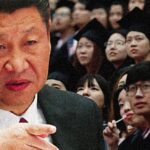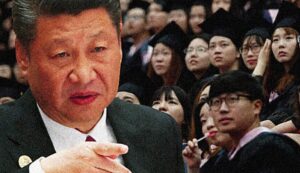
As Foreign Policy magazine confounds us with the wishfully entitled “Nobody Is Competing With the U.S. to Begin With,” Foreign Affairs magazine invites a somewhat more sober consideration of the threat of China.
In its May-June issue, Foreign Policy offers three articles on the subject.
● “China’s Alternative Order and What America Should Learn From It” by Elizabeth Economy.
The author’s dubious strategy is to “build on last year’s summit between President Joe Biden and Xi, curtailing inflammatory anti-Chinese rhetoric and creating a more functional diplomatic relationship. That way, the United States can focus on the more important task: winning the long-term game.” If resorting to inflammatory rhetoric has something to do with acknowledging the nature of the CCP and its conduct, let’s do that and skip the one-sidedly “functional” relationship.
● “The Delusion of Peak China: America Can’t Wish Away Its Toughest Challenger” by Even S. Medeiros.
“With the second-largest economy in the world in terms of GDP and deep ties to countries all over the world, Xi may make meaningful progress in shaping global rules and norms and undermining U.S. influence even as China’s economy slows. Chinese narratives about history and contemporary geopolitics resonate in the developing world, and Beijing is only getting better at promoting them. In short, either China is not peaking—or the idea of peak China doesn’t explain much about the challenges posed by China in the twenty-first century…. [E]ven a stagnant China can cause serious problems for Washington, economically and strategically.”
● “No Substitute for Victory: America’s Competition With China Must Be Won, Not Managed” by Matt Pottinger and Mike Gallagher.
“The administration has strengthened U.S. alliances in Asia, restricted Chinese access to critical U.S. technologies, and endorsed the bipartisan mood for competition. Yet the administration is squandering these early gains by falling into a familiar trap: prioritizing a short-term thaw with China’s leaders at the expense of a long-term victory over their malevolent strategy. The Biden team’s policy of ‘managing competition’ with Beijing risks emphasizing processes over outcomes, bilateral stability at the expense of global security, and diplomatic initiatives that aim for cooperation but generate only complacency.”
But if you dislike these ruminations, there’s always “Nobody Is Competing With the U.S. to Begin With,” which advises us, for example, that “U.S. security elites are obsessed with the threat posed by China and Russia to U.S. global primacy,” a “serious miscalculation.”











